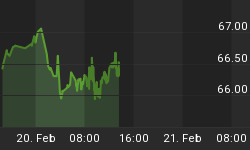Some recent headlines look ominous...
"Healthcare bill reveals hidden tax for precious metals transactions"
"Congress starts hearings on gold"
When I wrote the book Precious Metals Investing for Dummies, I included a chapter on the treatment of certain assets as "strategic assets" that garner the attention and involvement of both our government and governments abroad. Gold is certainly in the category of "strategic asset". Oil is another example of a "strategic asset".
What do I mean when I write "strategic asset". It is an asset that goes beyond mere economics. Most "things" have some type of economic value certainly. Grains, copper, zinc, lumber and thousands of other useful resources certainly have economic value. But some assets -- such as gold, oil and even silver -- tend to have a higher profile and are more intertwined with the destinies of governments. Certainly these assets tend to be "strategic" since having enough of this asset gives a nation some clout as it interacts with other nations. As nations compete on the world stage, some assets take on a value given certain conditions and events.
A good example of what I am talking about is oil. During the late 1970s, an energy crisis hit the West. The U.S. and other countries became exceptionally dependent on foreign oil. The lion's share of oil rested with Saudi Arabia and other members of the Oil Producing & Exporting Countries (OPEC). Very quickly, OPEC had power on the world stage. Oil was indeed a great economic asset but it became a "strategic asset" when it was used to leverage and influence conditions and events with the non-OPEC world.
I think that oil is still a strategic asset and in the next few years will regain its strength as a strategic asset. Right now, gold is very quickly becoming widely-acknowledged as a strategic asset.
Don't get me wrong...I think that throughout history, gold usually had a prominent spot and recognition as a strategic asset but sometimes it burns very brightly in that spot to the world-at-large. Why?
In general, governments -- specifically central banks -- see gold in a negative light. Sometimes, it sees gold as a threat. In today's world, gold is indeed a "threat" to many in the world of government. That brings us back to those headlines at the beginning of this essay.
For many governments (including ours), they see gold as a "competitor" to their chosen currencies. They don't like this and this is why there have been so many incidents in world history when governments sought to push gold into obscurity or to ban or outlaw the metal.
A good example is Zimbabwe. A few years ago the government banned citizens from owning gold. That was done at a time when they were hyper-inflating their currency into oblivion. Basically, the citizens couldn't own something that held its value...they were forced to trade in a currency that was losing value literally by the day (and even hour!).
Most certainly you will see more anti-gold actions by governments across the globe since most of the governments of the world are busy growing their money supplies to cope (according to their logic) with burgeoning debt and fiscal problems. It's as if government acted liked a spoiled kid saying "if you can't play with our toys (fiat currencies) then we will take away what you have (gold)".
Right now, many citizens are turning to gold because it is a good way to diversify oneself when "paper assets" such as bonds, stocks, mortgages and ...yes...currencies...are growing more suspect. But when government encroaches on the world of precious metals, what should one do?
Points to consider:
* Keep buying gold. But be diversified when you buy it. get some bullion coins (such as gold eagles and gold maple leafs), but now may be a good time to also consider gold numismatic coins as well. Why? Because modern governments tend to leave collectibles alone since they usually target bullion coins and bars. I don't have the space to give further details but one can find more detailed assistance on these matters in places.
* I would certainly suggest that you get very familiar with the writings and works of reliable pros such as David Morgan, Jay Taylor, James Turk, Roger Wiegand, Peter Grandich, Jeff Christian, James Dines, Howard Ruff and many others that write at this website and related ones. Their insights and guidance are great!
* I am usually very hesitant to mention numismatic coins because they do REQUIRE more diligence when buying. When you buy numismatic coins you have to be very aware of matters such as authenticity, condition, rarity and so on. Organizations such as the American Numismatic Association can also offer guidance.
* Lastly, please make your views known to your representatives in Congress. Americans and others should be able to buy and sell gold and silver and other precious metals with little interference from politicians and bureaucrats. Write them...call them...visit them! Just let them know that precious metals are an important part of a person's ability to prosper in the age of financial uncertainty and chaos.
















